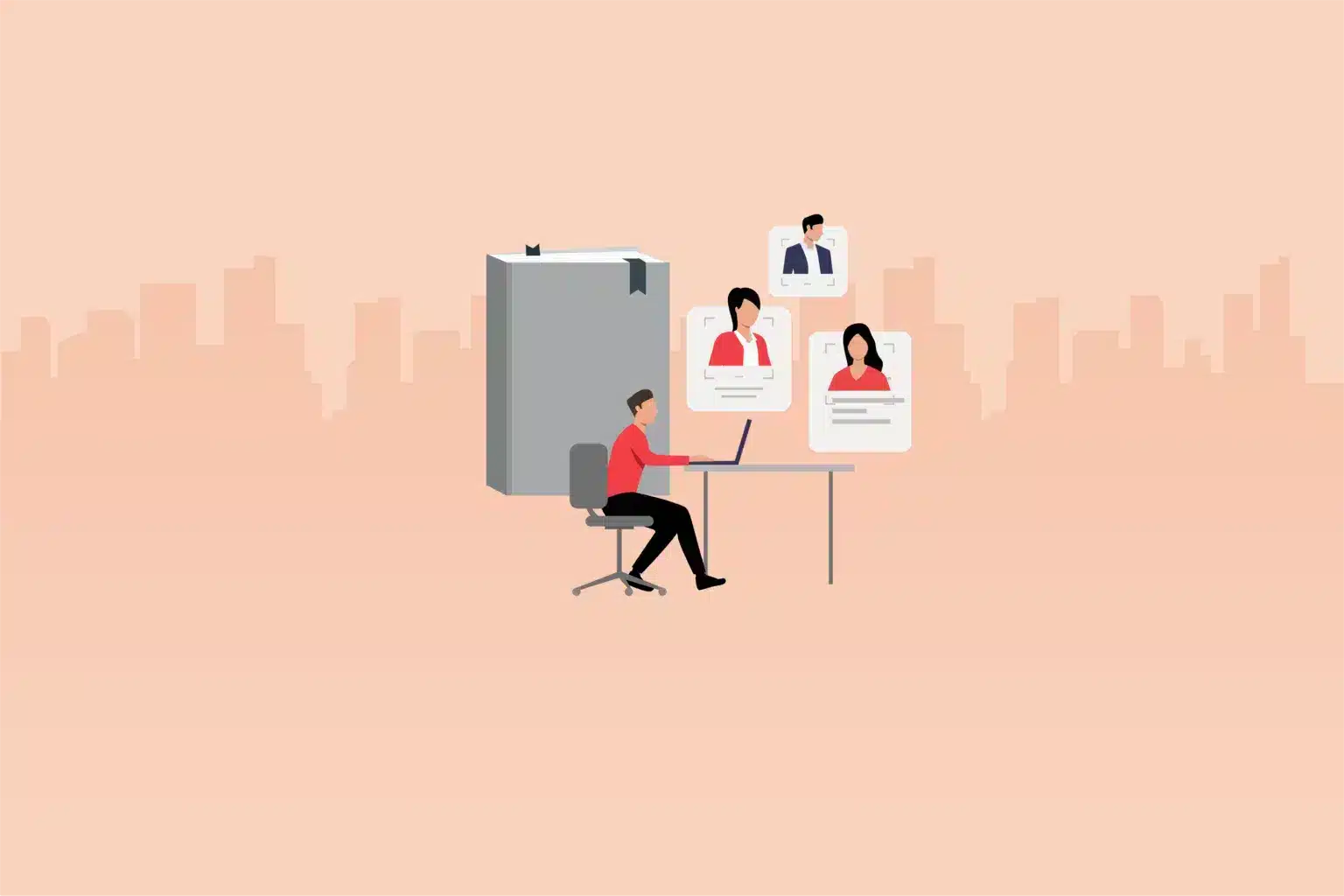When hiring employees it is critical to ensure that the candidates you hire, have the required abilities to solve challenges they will face while working for you. Qualifications simply mean they have the knowledge and possibly the skills to do the job. But that doesn’t indicate their ability to deal with uncertainty and solve problems as they arise.
In this article, we will be exploring problem solving in the workplace, what it is, why it’s important and how you can better evaluate candidates before hiring them for positions where it is a key requirement.
What are problem solving skills?
Solving problems is a skill we all use daily in our lives and in our work. Nothing is perfect. Uncertainty brings many challenging circumstances in our path. But how successful you are at solving daily problems will greatly influence whether you deliver the results you need for your job.
Problem solving is in essence the skill of assessing unfamiliar circumstances that present unexpected challenges and solving them by both assessing the available information and finding the most appropriate solution.
For example, a supplier might fail to deliver stock, or projects are delayed by unexpected complications. This is when employees need to be able to think on their feet. And face challenges head-on to find an alternative solution quickly. But not everyone has the same level of skill or experience.
Problem solving in the workplace requires both analytical skills, to analyze the information available and, creativity to brainstorm possible solutions when none may exist.
Six steps to solve any problem
Identify the problem
A candidate should have a sense of awareness of their working environment and be able to identify possible problems that they encounter. Candidates with strong problem solving abilities will not only identify challenges as they arise but will also be able to see problems up ahead.
Evaluate the situation
Strong analytical skills are crucial to evaluating the information around any problem. A candidate should be able to process all available information and use it to make the best decision.
Find Possible Solutions
Once a candidate has analyzed the information available to them, they need to find solutions. If they cannot find a logical solution, they need to be able to apply their creativity to find alternative solutions.
Evaluate the risks
Every choice has a consequence. And depending on the problem they are facing, there will be varying consequences to their actions. A candidate needs to be able to weigh up each solution and find the best one with the least risk of negative consequences.
Take initiate
Being a strong problem solver also requires initiative, which is the ability to take action without requiring supervision. The more senior the role, the more important it is for a candidate to be able to take action independently and find solutions on their own.
Evaluate the results
Once a solution is implemented it may be required to investigate the results. A candidate should be organized and have the discipline to be able to follow up with any problems to be sure that the action taken is permanent and effective.
Why is problem solving important in the workplace?
On paper, a specific candidate may have the required credentials for the job. They may have a university degree or technical courses under their belt. But does that mean they have the ability to solve unexpected complexities that will face them in the workplace?
Problem solving examples in the workplace
For example, software development is not only a highly complex field, but it also has a myriad of complexities that constantly challenge developers to find solutions in creative and unorthodox ways.
If your team is working with cutting-edge technologies, there may not be many solutions available to the problems they encounter. This will require developers to analyze the environment they are working in and develop customized solutions that have never been done before.
If you fail to hire team members with strong problem solving abilities you will find that your team will become overwhelmed, and experience constant delays as they struggle to find solutions.
This will severely affect the ability to keep to deadlines and deliver the best product possible.
But technical roles are not the only roles that require strong problem solving skills in the workplace. Managerial roles rely heavily on dealing with numerous problems, whether it’s managing team issues, dealing with technical challenges, or ensuring coordination of project activities.
Technical skills for any job are critical, it’s the bare minimum any candidate needs to meet. But it’s their ability to apply their knowledge and manage the uncertainty of their job that will determine whether they are able to deliver consistent results.
Failing to assess a candidate’s problem solving skills could cost you money, and compromise the level of quality your organization delivers.
How to assess a candidate’s problem solving skills?
Assessing a candidate’s problem solving skills is an essential part of the screening process. But how do you assess these skills? There are 2 main strategies to assess a candidate, either with interview questions or problem solving tests.
Problem solving questions
One of the ways you can gauge an applicant’s ability for problem solving in the workplace is to interview them and ask them various questions. Here are simple ways to gain a better understanding of how well a candidate can apply themselves.
Assess their experience
If a candidate has experience in a field, they will no doubt have faced many challenges in their previous roles. Ask them about what challenges they have faced, and how they solved those problems in the past.
The more challenging their previous role, the more experienced they will be at dealing with problems that will inevitably arise. This could be a good indicator of their level of skill at solving problems.
Here is problem solving interview questions to consider:
- What was your role in dealing with challenges in your previous position?
- Did you ever have to resolve problems on your own?
- What kind of problems did you face in your previous role?
- What resources did you have to solve them?
- Did you ever take proactive action in resolving these problems?
- Do you generally take initiative to solve a problem when you see one?
- Did you ever solve problems that no one else could solve?
- In what areas did you have to face the most challenging issues?
Assess their response
Confront them with various scenarios that they will encounter in their position by asking them to explain what they would do in a given situation. This will help you understand how they think, and gauge how they can handle the pressure of dealing with challenges on the fly.
Monitor how they handle the stress of having to solve a challenge without having much time to think about it. The faster they are able to respond with a clear course of action, the higher the chances that they will be equally effective at solving problems in their role.
Use examples of challenges that are highly related to the role they are applying for and take note of the thought process behind their decisions. Even ask them to explain their choices. This will give you a deeper understanding of how they are thinking and how they approach challenges.
Here is problem solving interview questions to consider:
- If you were to confront [problem] what is the first thing you would do?
- What information would you need to know to make an informed decision?
- Who would you contact first and what would you tell them?
- How would you coordinate with your team with regards to the problem?
- What would your strategy be to deal with the problem?
- Who would you involve in the process?
- How would you communicate the problem to the customer?
- How would you assure the customer, or relevant parties that you would resolve the issue?
- What would you do once you have resolved the issue?
Problem solving tests
Conducting tests to evaluate candidates is a great way to assess the effectiveness of candidates to solve real-world challenges within a simulated working environment.
Supervised problem solving tests
You want to get a better understanding of your candidate’s ability to solve problems in the real working environment. You could set up a test where you can test candidates in a series of challenges to evaluate their responses in a real working environment.
This will mean you need to have the capacity to use staff to assist in the tests. The results of these tests can then be captured and will need to be compared with each applicant that is evaluated.
What to consider when setting up an assessment?
Here are some questions to consider when developing an assessment for your candidate:
- What are the key challenges of the role?
- What are the most common problems a candidate will face?
- What are unusual problems that could arise?
- What are scenarios that could cost the company money?
- How does the candidate respond to pressure?
- Do they keep calm or lose their nerve?
- Are they logical in their approach to problem solving?
- Do they make swift decisions or are they indecisive?
- What is the key characteristic of a candidate you want to test?
Benefits of supervised talent assessment tests
Evaluating candidates face to face can offer great insights into their character and how they manage challenges. These assessments can uncover how they think and approach problems when they have to solve a problem quickly.
The success of such assessments relies on your staff and will require your organization to structure tests, define what are good and bad results, and make the time for each candidate. In situations where you are hiring teams or large numbers of staff, this may not be the most cost-effective way to test candidates.
When scaling your team, you may want a more automated and standardized process of managing assessments, in which case automated Talent Assessments will be a better solution.
Talent assessment tests
One way to test a candidate’s problem solving skills is to do a pre-interview talent assessment using a platform like Testlify. What this offers you is a way to structure uniform tests that can be conducted in an automated way to screen large numbers of applicants at once. These results can then be assessed in a central dashboard and you and your recruitment team can quickly establish which candidates have scored the highest results.
There are all kinds of problems that can come up in business, and the best way to solve them is with a diverse set of skills. When you have a problem, you need to be able to define it and break it down into smaller pieces, then find the right way to solve those problems.
To be a highly efficient problem solver a candidate needs to be able to be creative and analytical at the same time. Testlify’s problem solving test is designed to see how well candidates can identify the right answers to a problem in a short amount of time.
Candidates who are successful can identify the key elements of a problem and work through it at speed without making mistakes.
Why should you use a talent assessment test?
Any role that involves managing constantly shifting variables with tight deadlines requires highly developed problem solving skills. This may include administrative assistants, project managers, planners, software developers, and people working in hospitality or sales.
In fact, any role that requires the ability to deal with challenging environments and complexity will require strong problem solving skills.
Testlify’s problem solving test evaluates the following:
- Creating and adjusting schedules
- Interpreting data and applying logic to make decisions
- Prioritising and applying order based on a given set of rules
- Analysing textual and numerical information to draw conclusions
This test can also be bundled with other relevant tests to automate pre-interview assessments for each role you are looking to hire. And this means that if you are hiring for a technical role you will be able to assess both technical skills and their problem solving skills.
Benefits of talent assessment tests
The biggest benefit that automated talent assessment tests offer is that your organization can conduct high volumes of assessments, and easily collect and compare results. This makes shortlisting candidates for interviews so much easier.
In the past, conducting large-scale testing of job applicants was just impossible simply because of the logistical resources required. Today with automated remote testing platforms like Testlify, your organization can gain accurate insights of applicant skills, but also do it at scale.
This saves vast resources, streamlines the recruitment process, and means you can spend time interviewing the best-fit candidates. And this means reducing the risk of hiring the wrong staff and increasing the speed of hiring new staff when scaling your team.
Why problem solving skills are important?
If you are hiring staff for any position that requires strong problem solving skills you need to make sure they have the skills required. Whatever your needs are, the best way to evaluate candidates will depend on your organization, the number of applicants you need to process, and the speed at which you need to recruit staff.
Face-to-face interviews and assessments could be viable solutions for a company hiring a once-off position. But they can still be limiting and difficult to implement depending on your industry.
If you don’t have the time or skills to set up complex tests to evaluate candidate’s an automated skill assessment test might be a cost-effective solution.
You choose the tests you need, automate invitations and simply wait for candidates to complete them. Then you only need to evaluate the results and create your shortlist of candidates. Half your work is done, now you can spend more time with your best-fit candidates.







